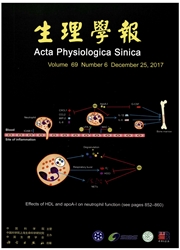

 中文摘要:
中文摘要:
本研究旨在体外构建乳腺癌三维(3D)培养模型,部分模拟肿瘤细胞在体微环境,以期建立理想的乳腺癌耐药研究模型。将乳腺癌MCF-7细胞与胶原支架材料复合,体外构建乳腺癌3D培养模型。用Carmine和HE染色法观察细胞形态,用CCK-8法检测细胞增殖情况,用活-死细胞染色试剂盒观察细胞活性,检测3D培养和二维(2D)培养条件下细胞对阿霉素、卡铂、5-氟尿嘧啶的药物敏感性,实时定量RT-PCR检测耐药相关基因P-糖蛋白(P-glycoprotein,P-gp)和多药耐药相关蛋白2(mrp2)m RNA表达水平,用Western blot检测P-gp蛋白的表达。结果显示,3D培养组内MCF-7细胞呈聚团生长,细胞增殖及活性良好。和2D培养组相比,3D培养组细胞对化疗药物的敏感性显著降低,P-gp和mrp2 m RNA水平显著升高,P-gp蛋白水平升高至5.3倍。以上结果提示,本研究成功构建了具有耐药表型及功能的乳腺癌3D培养模型。该模型对深入阐明耐药发生相关机制等研究具有重要意义。
 英文摘要:
英文摘要:
The aim of the present study was to develop three-dimensional(3D) culture model, a more pathologically relevant model, of human breast cancer for drug resistance study. MCF-7 cells were embedded within collagen gel to establish 3D culture model. Cellular morphology was observed using Carmine and HE staining. Cell proliferation was evaluated by CCK-8 assay, and cell activity was detected by Live/Dead staining kit. Drug sensitivities of the 3D culture to doxorubicin, carboplatin, 5-fluorouracil were assayed and compared with those of monolayer(2D) culture. In addition, the levels of drug resistance-related genes P-glycoprotein(P-gp), mrp2 m RNA expressions were detected by real time RT-PCR. Expression level of P-gp protein was detected by Western blot. The results showed that MCF-7 cells in 3D culture formed a number of cell aggregates, and most of them displayed good cell viability. The IC50 values of doxorubicin, carboplatin, 5-fluorouracil were all increased significantly in 3D culture compared with those in 2D culture. Moreover, compared with MCF-7 cells in 2D culture, the cells in 3D culture showed increased m RNA levels of P-gp and mrp2, as well as up-regulated protein expression of P-gp. These results suggest that in vitro collagen-embedded culture system of human breast cancer cells represents an improved pathologically relevant 3D microenvironment for breast cancer cells, providing a robust tool to explore the mechanism of drug resistance of cancer cells.
 同期刊论文项目
同期刊论文项目
 同项目期刊论文
同项目期刊论文
 期刊信息
期刊信息
